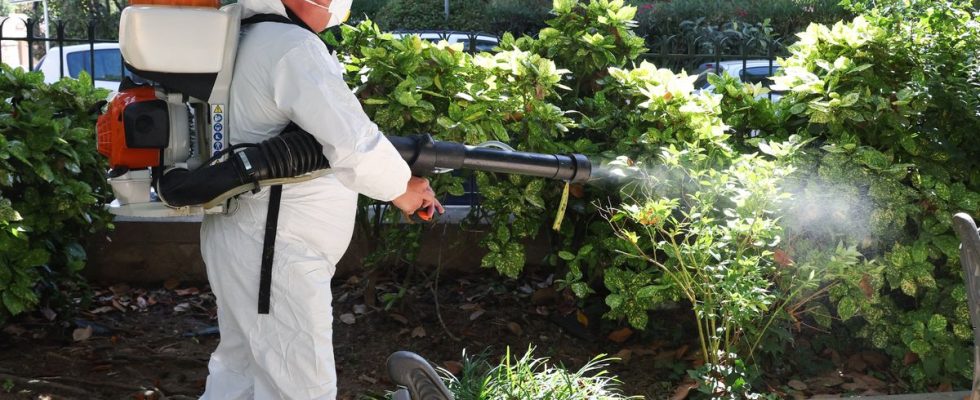Summer is behind us, it is September 25 but mosquito control operations continue in New Aquitaine, one of the many French regions colonized by the tiger mosquito since 2004. After a case of tropical disease ( dengue, Zika or chikungunya) has been confirmed in the Bacalan district, in Bordeaux, an operation is scheduled there this Monday evening. Some would dream of spreading it over their homes, the story of being eaten a little less and others fear sprayed products. We take stock of the regulation of mosquito control in France.
Why wait for cases of tropical diseases to treat?
Bad news: the insecticide treatments used are not a lasting solution to reduce the mosquito population because they have no effect on the eggs or larvae. In the days following application of the products, a new generation of (healthy) tiger mosquitoes appears. The respite is therefore short-lived.
Worse, biting insects could become accustomed to the pyrethroid used in treatments which could then no longer be effective in the event of epidemics. Regular treatments are therefore not a good idea at all. When a case of tropical disease is proven, localized treatment is carried out to prevent tiger mosquitoes from becoming a vector of the disease. In short, they could bite the sick person and then spread the virus that affects that person. It is therefore an emergency measure, to be used sparingly and which has short-term effectiveness.
Who carries out the treatments and do they pose any risks?
There are several private operators who are mandated by the regional health agency to apply the treatments. The inhabitants of the treated areas pay nothing, it is a public health operation financed by taxes.
“The pyrethroid used (Aqua K-Othrine) is toxic to all insects, unfortunately there is no insecticide that targets only adult mosquitoes,” specifies ARS Nouvelle-Aquitaine on its website. To limit the nuisance of the treatment, particularly with regard to pollinating insects, it is carried out at night. Residents of the areas concerned are invited to stay indoors for the duration of the treatment (one hour), to bring in their laundry, not to eat vegetables and fruits from their garden, in the days that follow, to bring in their animals inside, etc. “Although the product and the dosage used are without risk for the population, it is strongly recommended to follow the precautions listed in the document,” specifies the ARS.
Where are we with the spread of these tropical viruses in New Aquitaine and France?
In New Aquitaine, between May 1 and September 8, 2023, 74 imported cases of dengue and four imported cases of chikungunya were identified compared to thirty imported cases of dengue and three imported cases of chikungunya over the same period in 2022. 83 treatments localized measures have been carried out in the region to combat the spread of these viruses.
Nationally, over this same period, 674 imported cases of dengue, fifteen imported cases of chikungunya and six imported cases of Zika were recorded compared to 272 imported cases of dengue, 22 imported cases of chikungunya and three imported cases of Zika in 2022. More than half of dengue cases returned from a stay in Martinique or Guadeloupe, where an epidemic is underway.

